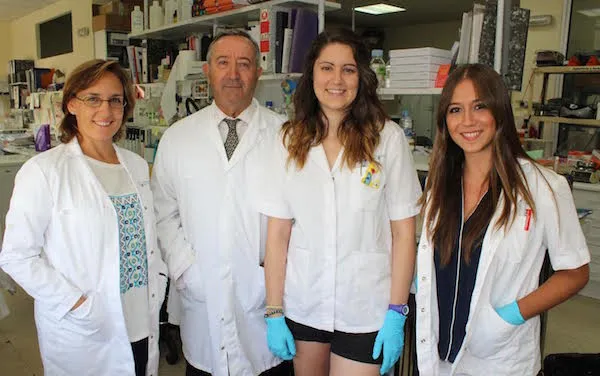A team of Spanish researchers developed and tested a compound capable of curbing the progression of renal disease caused by diabetes, the main cause of dialysis entry of diabetic patients.
The results are published in the Journal of the American Society of Nephrology, in an article that sign researchers from the Health Research Institute of the Jiménez Díaz Foundation (IIS-FJD) and the Autonomous University of Madrid (UAM).
The compound is a molecule developed from the SOCS1 protein, which protects renal function in the initial and advanced phases of diabetes by reducing the expression of the genes responsible for the inflammation of the kidneys, according to a statement.
The treatment, which has proven safe and well tolerated, manages to penetrate the kidney cells and inhibit in them the harmful effects of high sugar levels caused by the lack of insulin of diabetes.
For Carmen Gómez-Guerrero, researcher at the Nephrology Group of the IIS-FJD, a teacher at the UAM and author of the study, the new compound has proven to be able to reduce the excretion of albumin in the urine and renal damage or nephropathy, "byWhat is emerging as a future treatment to preserve renal function in diabetic patients and avoid dialysis entry. "
Jesús Egido de los Ríos, another of the authors, declared that "after years investigating compounds that could stop the progression of long -term diabetes -diabetic nephropathy -" have managed to identify "an effective treatment in diabetic mice that not only reduces theinflammation, but delay the advance of the disease. "
"Our goal is now to initiate its preclinical development to raise the first phases of trials with patients," he said.
There are currently no effective treatments for diabetic nephropathy, which causes about 40 % of dialysis entries, so this experimental compound "opens the door to a promising scenario for these patients, who currently suffer a very important loss in their qualityof life, "according to the authors.
The most common treatments (focused on controlling weight, reduction of body fat or blood pressure) are insufficient in many patients to avoid cardiovascular risks and progression towards renal disease, the scientists emphasized.


